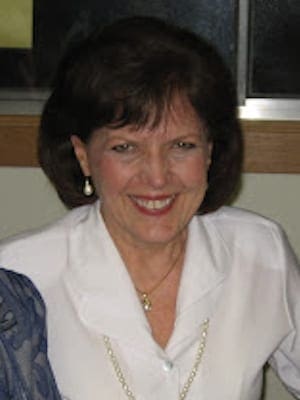“Beneath the Skin: Baptists and Racism” screened at the recent Kentucky Baptist Fellowship Spring Gathering. While viewing the presentation, I felt a sense of despair that despite decades of excruciating effort to rid our society of this blot, racism still plagues us.
Like kudzu, we can’t seem to get rid of it, no matter how diligently we prune. Just when we think we’ve dealt with the issue effectively in some areas, killing it off for good, it keeps reappearing in unexpected places, even in our churches. We’ve made progress, of course, but our society still has a long way to go.
One of the areas in which we have made some progress is with racist language. Today’s American society has largely been sensitized to the ill effects of using racist language when referring to groups of people, especially African-Americans. In the last decade or so, America has had growing challenges with the use of racist terminology for Latinos, Muslims and others, but we’ve been dealing with racist terminology for African-Americans much longer.
Slavery in America has been illegal since the Civil War, but racist language was publicly, openly heard until the late 20th century and still persists in too many circles. People of color long ago recognized that they would never achieve equal status with Caucasians as long as common, derogatory terminology about their race remained unchallenged. After the era of Martin Luther King Jr., anyone using racist language risks becoming a target of scorn and possible legal action.
The problem with racist language is bigger than derogatory terminology, however. It’s just as devastating to be “invisible” – ignored, unseen, not thought of.
Former Secretary of State Condoleezza Rice, honoring the memory of her childhood friend Denise McNair and three other girls killed in the 1963 Sixteenth Street Baptist Church bombing in Birmingham, Ala., said in a speech a few years ago: “America finally came to terms with its birth defect, finally came to terms with the contradiction … that when the Founding Fathers said, ‘We the people,’ they didn’t mean any of us.”
Racist language and sexist language garner the same basic effect: exclusion. The exclusion may or may not be intentional, but the effect is the same. As with racist language, despite decades of slow progress, gender-exclusive language is still with us, even in churches.
Midway through the 2008 American presidential campaign, then-candidate Barack Obama, in a Democratic primary campaign speech, quoted Abraham Lincoln, proclaiming, “All men are created equal.” I was surprised that Hillary Clinton, his female opponent at the time, didn’t take Obama’s unexamined use of this 19th-century quote as a reason for rebuttal on the grounds that in the 21st century the quote is perceived as sexist. (Perhaps she either didn’t notice or didn’t want to risk being labeled as “unpatriotic” for questioning the words of Lincoln, a revered American icon.)
The truth is, Lincoln’s words were exactly what he meant. He was trying to bring the races together, not the sexes. Likely he wasn’t deliberately excluding women; he just hadn’t thought to include them. Women were invisible to him in both grammar and thought when it came to important issues.
That’s the problem with gender-exclusive language in a nutshell. Language shapes thought. Thought precedes action. And our grammar rules and practices keep women linguistically invisible. Our moderate churches say they are including women, but unless church leaders are intentional about including them through deliberate, consistent use of gender-inclusive language, women will remain second-class members in most churches.
It’s not a matter of intentionally excluding women. It’s a matter of intentionally including them. It’s a matter of recognizing that the overwhelming majority of them are already one-down in society and must constantly be intentionally included in order to have the same opportunities as their male counterparts. Otherwise, by default, they will remain invisible and overlooked for church leadership positions and other opportunities traditionally offered to males.
Jesus didn’t just preach equality. He practiced a life of intentional inclusiveness, giving us a perfect example of how to treat each other with love. Jesus reached out a welcoming hand to the woman with the issue of blood, to the Samaritan woman, to the lepers and tax collectors, to the children whom his disciples dismissed, to others whom society marginalized. We can do no less than follow his loving example.
Naomi K. Walker is music/worship pastor at Immanuel Baptist Church in Frankfort, Ky. A version of this column first appeared on her blog.
Naomi K. Walker is an ordained Baptist minister. Now retired, she served as music/worship pastor at Immanuel Baptist Church in Frankfort, Kentucky, from 1995 to 2017.

